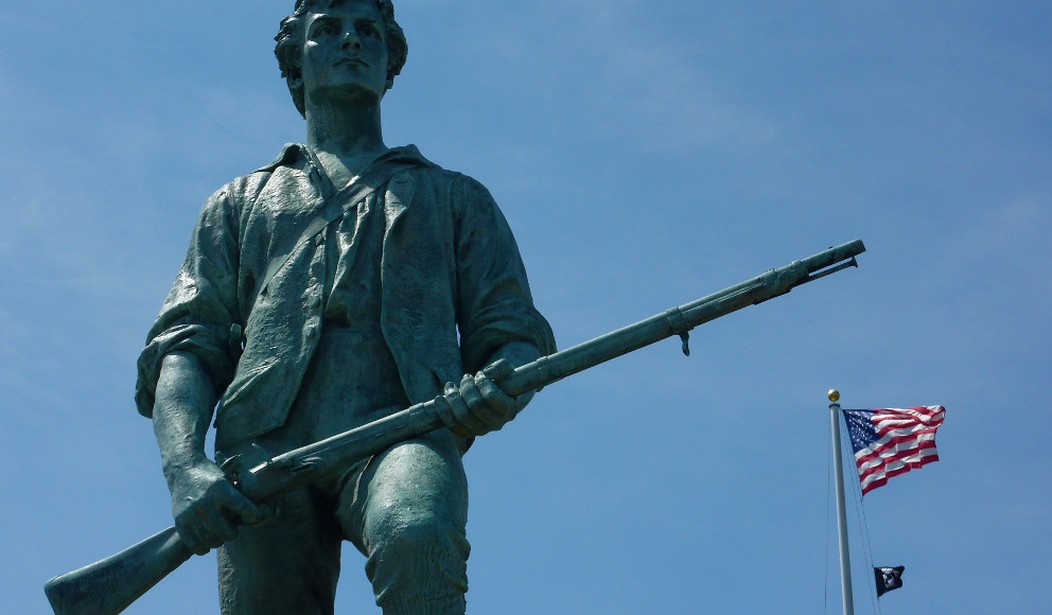If you make a claim as audacious as that, you better bring the receipts, but unfortunately Fordham University professor, historian, and frequent expert witness for anti-gun politicians defending gun control laws Saul Cornell failed to provide a single piece of evidence for his assertion that, “[a]t the time of the Second Amendment, government sought to discourage Americans from purchasing the weapons they desired, and instead enacted laws forcing them to obtain the weapons the government believed essential to preserving a well-regulated militia.”
That’s not the only eyebrow-raising assertion in Cornell’s column at Slate that argues for the Supreme Court to, in essence, reject its own text, history, and tradition test laid out in the Bruen decision. In Cornell’s version of history, “traveling armed in public, apart from a list of recognized exceptions, violated the peace” and anyone doing so would have been stopped, questioned, disarmed, and subjected to a “peace bond” by a local justice of the peace.
What Cornell doesn’t say is that, under the common law in question, “going armed was no offense unless it was done in a manner and with the intent to terrorize others”, as Second Amendment attorney and scholar Stephen Halbrook has concluded. The common law was based on the English Statute of Northampton of 1328 as well as the Declaration of Rights of 1689. If, as Cornell asserts, the right to carry a firearm for self-defense in public wasn’t really considered a right at all in 1791, how does he explain the instructions a judge gave to the jury in a case just thirty years later called Rex v. Dewhurst: “But are arms suitable to the condition of people in the ordinary class of life, and are they allowed by law? A man has a clear right to protect himself when he is going singly or in a small party upon the road where he is traveling or going for the ordinary purposes of business.”
Even more objectionable is Cornell’s assertion that “looking for modern-style gun laws or analogs crafted to respond to rampant gun violence is pointless” because the arms of 1791 (and presumably 1868, when the Fourteenth Amendment was ratified) were “ill-suited for crimes of passion.” Even if that were the case for single-shot muskets and pistols, “arms” encompasses more than just firearms, and Cornell can’t point to any law contemporaneous with the ratification of the Second Amendment that tried to address violence through any widespread or wholesale bans on other types of arms. Not until the 1830s do we start to see any bans of that kind, in that case directed at Bowie knives. And even then, as attorney and Second Amendment scholar David Kopel has found:
The knife category of Bowie knives plus dirks and/or daggers was frequently regulated at the same level as handguns. That is, prohibitions were rarities. The mainstream approach for handguns and knives was non-prohibitory for peaceable adults, such as laws forbidding concealed carry (while allowing open carry), prohibiting sales to minors, or specially punishing misuse.
I’m just an armchair historian myself, but Kopel and Halbrook’s Second Amendment scholarship is only disputed by, well… gun control activists and anti-gun academics like Saul Cornell, who contends that “the Supreme Court needs to rescue Bruen from the chaos it has created in the lower courts”.
In reality, Cornell would much prefer the Court simply cast aside Bruen, Caetano, McDonald, and Heller and declare that the Second Amendment doesn’t protect an individual right at all; which is exactly what he argued in an amicus brief when Heller was before the Supreme Court fifteen years ago. The Supreme Court rejected his version of history then, and there’s no reason why they shouldn’t do the same today.









Join the conversation as a VIP Member